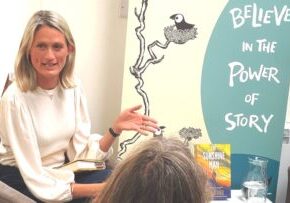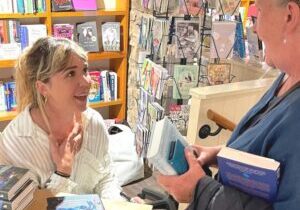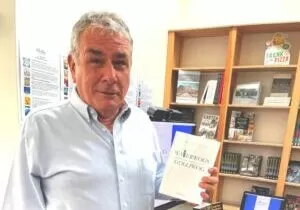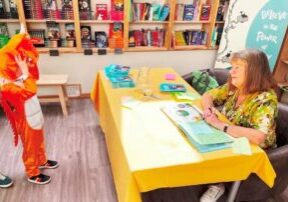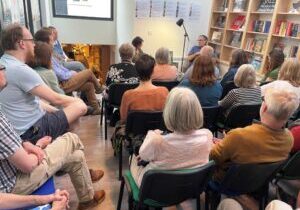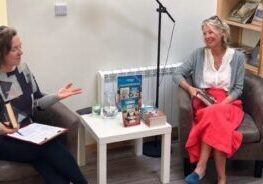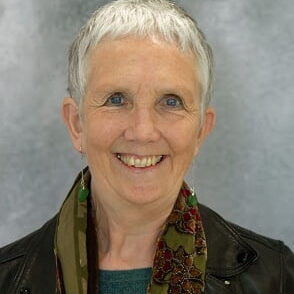
Ann Cleeves is the author of over thirty critically acclaimed novels and in 2017 was awarded the highest accolade in crime writing, the CWA Diamond Dagger. She is the creator of popular detectives Vera Stanhope and Jimmy Perez who can now be found on television in ITV’s Vera and BBC One’s Shetland. The TV series and the books they are based on have become international sensations, capturing the minds of millions worldwide.
Ann worked as a probation officer, bird observatory cook and auxiliary coastguard before she started writing. She is a member of ‘Murder Squad’, working with other British northern writers to promote crime fiction. Ann is also a passionate champion for libraries and was a National Libraries Day Ambassador in 2016. Ann lives in North Tyneside but grew up in North Devon, where her forthcoming Two Rivers series is set.
The first book in this series, The Long Call, can be ordered with us from our bricks-and-mortar shop and through our website shop here.
We are absolutely delighted to be hosting Ann in Crediton on 12th June, and hopefully you’ve already spotted that Raven Black, winner of the CWA Gold Dagger for Best Crime Novel, is one of our Big Read titles. If you haven’t already read it, it’s a gripping novel and available at the pick up / drop off stations in the cafés, coffee shops, greengrocers, wine shop, library and hairdressers in town!
Ahead of her visit, we asked Ann:
Q: What book changed your life?
A: Inspector Maigret novels by Georges Simenon
This book didn’t quite change my life – I’d come across the joys of crime long before I discovered Simenon – but it influenced my writing style and it hooked me into a life-long passion for translated fiction.
When we were first married, my husband and I were the only residents of Hilbre, a tiny tidal island that lies just off the Wirral coast in the Dee estuary. I was a student at Liverpool university and if the tides were awkward, I’d have to stay with friends, a professor of physics and his wife. Their house was full of books, many in piles in the spare bedroom, and there I came across many writers new to me. I read my way through C.P. Snow’s Strangers and Brothers series one winter and in that untidy bedroom, I first met Simenon’s Inspector Maigret.
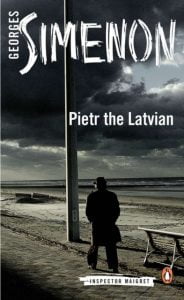 I remember the book quite clearly. It was a hardback edition, with a dusty fawn cover, an omnibus of three novels. Simenon’s books were always very short – his skill was to make every sentence work hard for him – so an omnibus made sense. I don’t remember the titles of the individual stories, but I do remember the sense of entering a different world, a Paris of seedy nightclubs, bars and prostitutes. If we read another culture’s popular fiction, we can understand better its preoccupations and domestic rituals. Through Simenon, I had a taste of the food, the omnipotent French concierge, the power play within a conventional marriage, and somehow that summed up the place for me.
I remember the book quite clearly. It was a hardback edition, with a dusty fawn cover, an omnibus of three novels. Simenon’s books were always very short – his skill was to make every sentence work hard for him – so an omnibus made sense. I don’t remember the titles of the individual stories, but I do remember the sense of entering a different world, a Paris of seedy nightclubs, bars and prostitutes. If we read another culture’s popular fiction, we can understand better its preoccupations and domestic rituals. Through Simenon, I had a taste of the food, the omnipotent French concierge, the power play within a conventional marriage, and somehow that summed up the place for me.
Later, I moved to newer translated crime for my fix of vicarious travel – Henning Mankell took me to Sweden, Fred Vargas to a very different France, Arnaldur Indridason to Iceland – but I learned more about the craft of writing from Simenon than from any other writer. I’m still in awe of his spare, apparently simple style, his ability to sum up a character obliquely in a few words. I’m delighted that Penguin is reprinting all the Maigret books, with translations by the magnificent Ros Schwarz and Sian Reynolds. I’ll return to them with pleasure.
May 17, 2019
Blog > Interviews > Ann Cleeves



